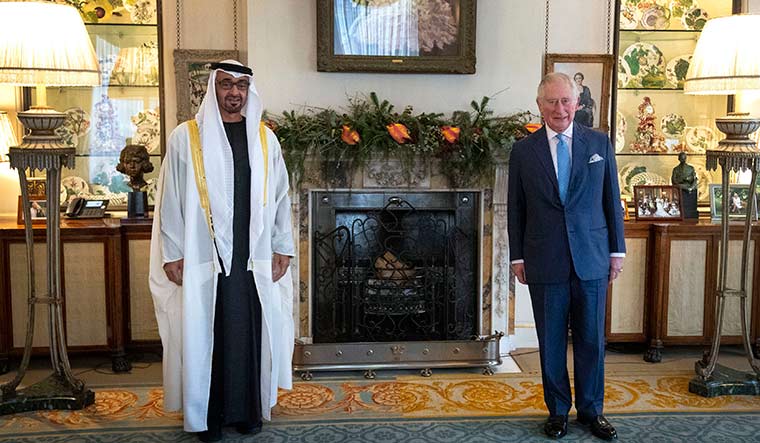IT IS SUPPOSITION, of course, as we do not know what stance the late Queen took with [UK prime minister Tony] Blair [on the Iraq war], and what he told her. Like Her late Majesty, ultimately King Charles would have had to acquiesce eventually to remain politically neutral, as he must. That said, given his deep knowledge and extensive and high-level contacts in the Gulf states, and the esteem in which he is held in in the Arab world, it is hard to imagine Charles would have remained silent, and that Blair would have had an easy ride.
Charles was not alone in his grave reservations about sending in the troops in what was being called an ‘illegal war’, as the offensive did not have United Nations backing. Kofi Annan, the United Nations secretary-general, stated clearly in September 2004 that he believed the US-led, UK-backed invasion of Iraq was an illegal act that contravened the UN Charter….
Sources close to Charles, however, believe that while as monarch he would have had no choice but to allow Blair to pursue his agenda, he would undoubtedly have voiced ‘his strongest possible objections’ on the war. ‘He most certainly would have advised the prime minister to think again and warned against British military intervention,’ said an informed source. His advice to Blair, senior sources confirmed, would have been to heed the warnings of experienced Arab leaders in the region, rulers with whom Charles had built up a good rapport and working relationships over many years.
As Prince of Wales, Charles’s desire to be seen as a pioneer and a shaper of ideas, and to enjoy growing political influence, was a source of serious concern to his advisers. Several said that the prince actively engaged in contentious issues because it raised the debate on a subject that would otherwise be swept under the carpet.
★★★
Today, as the King, Charles is a respected figure in the Gulf states and Middle East, not least for his sympathetic speeches about Islam when Prince of Wales. Like Tony Blair, he has studied the Koran in depth, and he started learning Arabic in 2012, although he admitted that he struggled and eventually gave up. When corresponding with Arab leaders, he always signs his name in Arabic, another show of respect and a small nod to respecting the other culture.
★★★
When given the chance, Charles would point out why the delicate differences in culture in the region were so crucial to understand. It was a region, he would stress, still dominated by tribal loyalties. So, marching in carrying a banner for Western-style democracy was futile, in his view. One of Charles’s circle of friends, who was fully aware of his views, said, ‘The prince was wise enoughto foresee that. Why weren’t the politicians of the day? It was as if they had. Perhaps it didn’t suit their or the government’s hawkish agenda at the time.’
In Charles’s view, the only way to achieve anything resembling a proper democracy in Iraq and for the West to have stood any chance of winning the so-called ‘war on terror’ was by dealing with the ‘real toxin’ infecting the whole world: the Israel–Palestine question. To this day, privately, he maintains that the West must focus on education and resisting what he believes is a ‘terrible distortion’ of Islam and how it is perceived in the West. Only then―when the wider world embraces the true Islam, combined with a serious collaborative effort to find a workable solution to the Israel–Palestine question―will, in his opinion, the rage that drives the war on terror start to wane.
‘I have heard him [Charles] say time and again, “Remove the poison and you remove the cause of so much of the terrorism,”’ a source close to the King said, adding that it was his core belief on the issue.
Our King: Charles III: The Man And The Monarch Revealed
Author: Robert Jobson
Publisher: John Blake Publishing (imprint of Bonnier Books)
Pages 304; price: Rs1, 824.57 (e-book)

